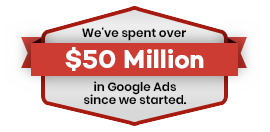
There are different opinions and thoughts as to the best internet marketing strategy. However, all of them agree that you have NOT started the process unless you find a way of getting eyeballs to your website. That means driving targeted traffic to desired pages.
SEO positions your business to take advantage of free traffic from search engines. If done right, it could drive a nobody in an industry to an authority figure in a niche, market segment or market as a whole. Wouldn’t you like your business to be in that position? If so, it is important that you get your SEO right.
Let’s start with one important area: On-The-Page Criteria. There are a number of things that you can do to make your site more search-engine friendly. They have different weightings, but add in one way or another to helping you rank higher. Here are a few:
Content
Your site’s content is what both search engines and visitors are interested in. Therefore, it should be the very foundation of any SEO attempts. Google looks at difference factors in your content like its quality, relevance to searchers, the keywords used, visitor engagement and freshness. Top quality content is NOT an option. It is the only way to enjoy long term success with search engines. You need to ensure you do everything within your power to only publish the best content you are capable of producing and/or obtaining. The higher the quality of your content, the better your visitor engagement would be. Which brings us to the next point:
Google has ways of tracking how your visitors respond or interact with your content. Do they go through your pages looking for more content? Do they spend a lot of time on your site or do they just click back to the search page or click away to another site? These count as serious ranking factors. Therefore, make sure you do your best to improve visitor engagement (easily done if you have great content).
How do searchers look for what you wrote about? It is important that you understand how people in your niche search for things. For example, if your site is devoted to an American audience, writing about soccer as football (that’s what the rest of the world calls soccer) will attract the wrong audience. This is because what Americans call football is closer to what the rest of the world calls rugby. It is important to sprinkle relevant keywords into your content. You have to do it in such a way that it flows naturally. While you shouldn’t stuff your page with too many keywords or phrases, you should give search engines enough to know what your page is about.
Search engines also check how fresh your content is. This is very true especially in niches where there is the need for “new” information. If Google notices a surge in search queries for a particular term, it would naturally assume that something must have spiked that interest and such a thing is more likely to be new or fresh. However, don’t bother about editing your page every now and then just to keep it “fresh”. Edit your pages only when there is the need to do so. Don’t forget that you are writing for your readers and NOT just the search engines. Great timeless content might NOT need any changes for years and still do the job.
Site Architecture
This touches areas like your site’s loading speed, crawl-ability (how easy it is for their robots to go through your pages) and how descriptive your urls are. If there is one thing SEO experts have discovered, it is that search engines show a preference for sites that load faster (That’s obviously something that helps user experience). Do your best to remove things that slow your site down. You can move to a faster server just to ensure your site loads as quickly as possible and you’ll get some love for it.
If you make it difficult for search engine robots to fetch content on your different pages then you are robbing yourself of the opportunity to rank well. That’s why you need to have a good tiered structure. It’s good to have a sitemap (both the XML type and the index type you have on your home page). Avoid scripts that hide text unless you want specific parts of your site hidden from search engines (or don’t care if they are).
HTML Code
Did you know that your html code can affect your ability to rank on search engines. First and foremost, it is important that you have clean code (An html validator will help with this). However, most sites don’t have this problem as most HTML editors and CMS platforms take care of those automatically. However, you have to pay attention to particular areas of your HTML coding. The first one to look at critically is your title tag. If your page is a book then the title tells both readers and search engines what to expect. While you should be careful about how you blend your target keyword into your title, it is important that you have it inside your title. Just don’t make it comprise of the keyword only.
Another area of serious importance is your meta description tag. While it is NOT a ranking factor directly, it helps activities that impact your ranking. For example, your description will determine how well your listing does if you appear on the first page for your target keywords. Now, it will affect you negatively if people don’t click on your link there. It means that you are NOT relevant to the search term and might make you go down with time. Therefore, it is important that you write a description that motivates searchers to click to your site.
Take your header tags seriously too. Done right, they help show search engines that your page has structure. They also show important parts of your pages. However, don’t go overboard with them. Use them in a logical manner. If you don’t have any reason to use them, don’t. While they have been identified as ranking factors, they don’t weigh that much.








